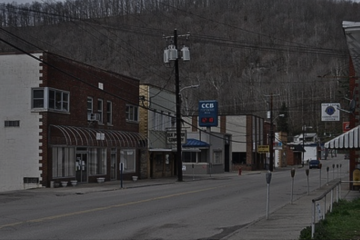Things are quickly changing, even over the span of just a week. The World Health Organization declared COVID-19 a pandemic and President Trump declared a national emergency because of the pandemic. While we don’t have any known cases in West Virginia as of March 15; that will probably change soon as testing catches up with what is really out there. In the meantime, our lives are changing. Social media is ablaze with information– good and bad. And just what is this thing called “social distancing?” Schools are now closed in West Virginia for the foreseeable future. People are panic buying items from supermarkets they don’t really need. Kids can be confused if we as adults are confused. Let’s all take a collective deep breath in and see what we already know.
You probably saw the sun came up this morning and the world didn’t end. It’s good to stay positive. Look at the children you care for and love. Another wonderful gift in life! Let’s also begin with what we know and how that might work to help us. There are only two ways this virus spreads: to susceptible people through the air from someone who is sick with coronavirus (mostly through coughs or sneezes), and through virus particles on surfaces, where susceptible people touch them and infect them through contaminated fingers. That’s it! It’s not passed in the water, and it doesn’t come through the window with rays of sunshine.
There are some really basic things we can do in a pandemic emergency that will make a huge difference in stemming the disease. “Social distancing” means staying away from people as much as possible and to limiting contact when you have to go shopping or out to eat. Governor Justice closed schools  to stop the potential spread because kids are close together at school and are at risk of sharing and spreading the virus.
to stop the potential spread because kids are close together at school and are at risk of sharing and spreading the virus.
This article from the Washington Post is also a beneficial read in how social distancing stops the spread of viruses.
It will be very hard for kids of all ages to be away from school. There is only so much television time and device time they can have. As the days become weeks, they will want to visit with their friends– something that is not recommended and defeats the idea of social distancing. You can help kids by reminding them of homework, which will keep their minds busy. While devices can be distracting, they can also help friends stay connected. If you don’t have access to internet, a telephone can also work just fine, as many of us older adults know. Self-isolating doesn’t necessarily mean being cooped up in the house all the time. Fresh air is good for everyone. If you can, find time to go out in nature away from other people. Spring is here with flowers and leaves emerging from winter’s slumber. It’s a great time to be outdoors in West Virginia’s State Parks and our National Parks or just at the park closest to home.
Check in on neighbors and relatives who might be ill or shut in. This is a good way to show how children how they can care for others, as we’re all connected in this effort to control this virus. Calling or even writing to grandparents and elderly relatives can foster life-long habits of staying in touch with the people you love. Remind kids that they are playing an important part in ending the pandemic by staying away from people who are ill, elderly, or have conditions that weaken their immune systems. And, of course, you can emphasize proper handwashing. Kids will learn by your example.
 Talking to your children about the pandemic involves being calm and giving them the facts. There are things they can do to help. This article gives great ideas!
Talking to your children about the pandemic involves being calm and giving them the facts. There are things they can do to help. This article gives great ideas!
The best source of accurate information is the Centers for Disease Control and Prevention’s website about COVID-19. They have a family preparedness page you can find here with the most up-to-date information. Check back often for any updates and remember- listen to the experts and not social media.
Be aware, be informed, and, as always, wash your hands.




0 Comments